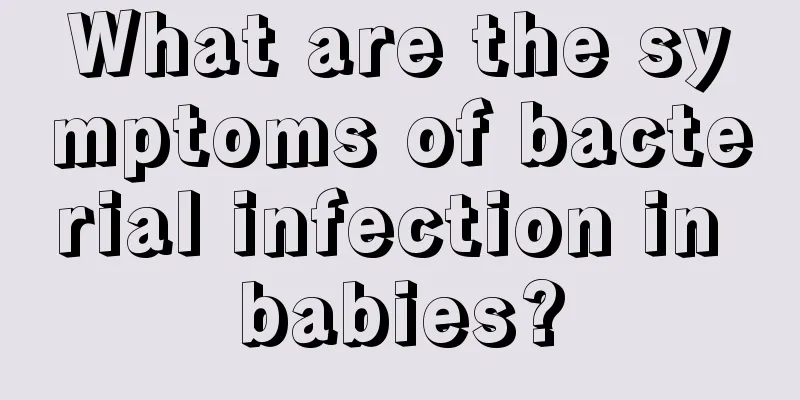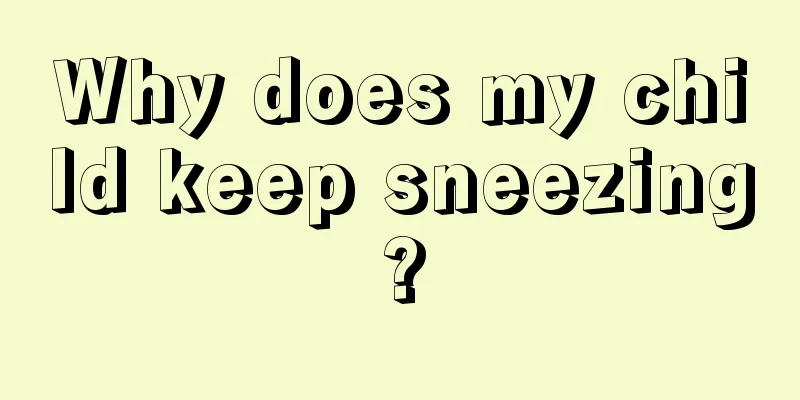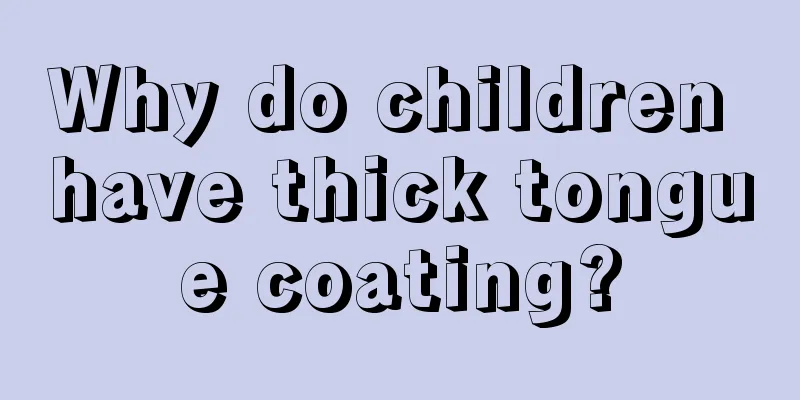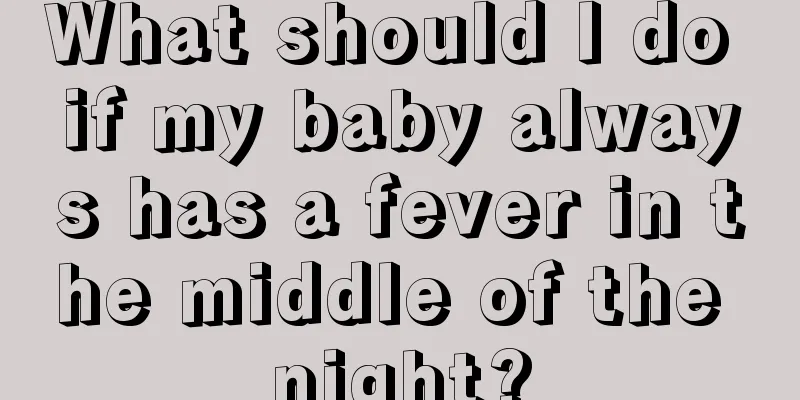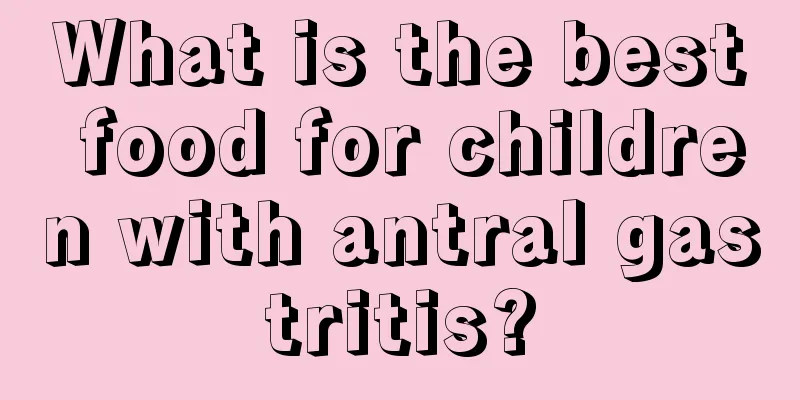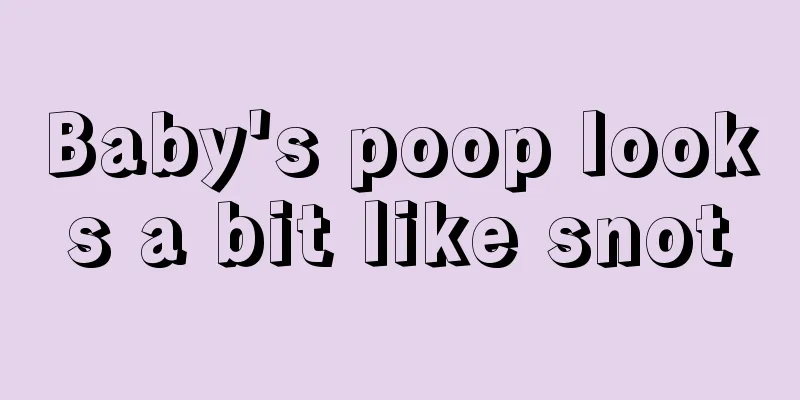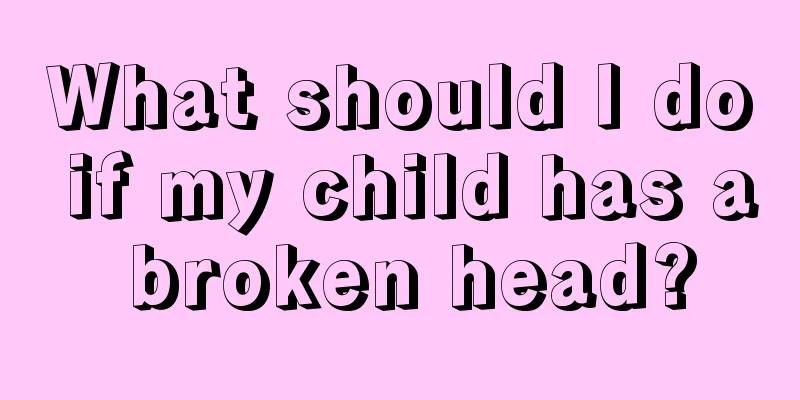What are the symptoms and manifestations of encephalitis in children?
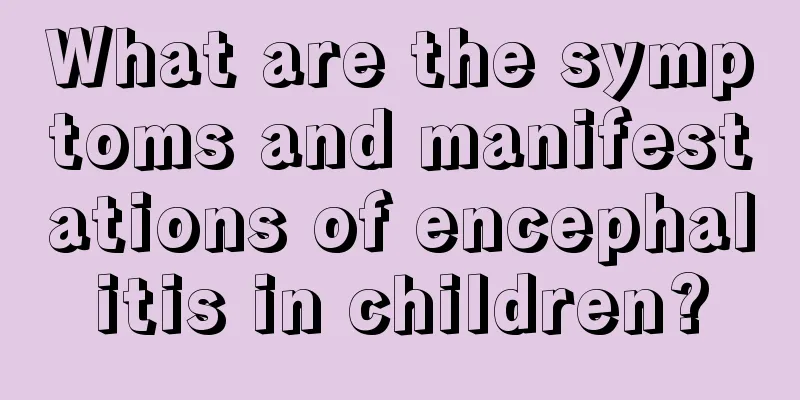
|
As we all know, encephalitis is a very serious disease. In order to prevent encephalitis in children, parents must do a good job of prevention. First of all, they must find ways to improve the child's resistance. In addition, they must educate children to develop good hygiene and eating habits. In short, encephalitis is a disease that is completely preventable. Avoiding the disease is the best way to deal with it. Otherwise, once a child develops encephalitis, the following symptoms will appear. Symptoms and manifestations of encephalitis in children: 1. Children in the prodromal phase have symptoms such as fever, headache, myalgia, vomiting, and diarrhea. 2. The symptoms of encephalitis vary in severity, mainly manifesting as neuropsychiatric abnormalities. Manifestations of neurological abnormalities include fever, headache, vomiting, drowsiness, coma, convulsions, etc. In severe cases, abnormal symptoms may occur in the cerebrum, hypothalamus, basal ganglia, brainstem, cerebellum and spinal cord. Mental abnormalities manifest as excitement, talkativeness, irritability, crying and laughing at random, insomnia, abnormal behavior, hallucinations, fantasies, or indifferent expression, silence, decreased activity, refusal to eat, poor orientation, memory loss, incontinence, etc. 3. Associated symptoms are symptoms of corresponding viral infection before or at the same time as the onset of encephalitis. Treatment of encephalitis in children: 1. Hospitalization General treatment: Children with encephalitis should be hospitalized. After hospitalization, closely observe changes in consciousness, pay attention to changes in body temperature, pulse, respiration and blood pressure. Pay attention to pupil size at any time. Once changes occur, symptomatic treatment should be carried out. Pay attention to nutrition and calorie supplementation. Comatose patients can be fed through nasogastric tubes. Frequent convulsions should be intravenously infused, with a daily fluid volume of 50-0 ml/kg. When using dehydrating agents, pay attention to supplement potassium salts. Comatose patients should be turned over frequently, keep their skin clean and dry, and prevent bedsores. Keep the mouth clean. Comatose patients who cannot close their eyes should protect their eyes, pay attention to hygiene and protect the cornea. Children with convulsions should prevent tongue bites and prevent the root of the tongue from falling back and blocking the respiratory tract. 2. Symptomatic treatment 1. When the fever is high, the room temperature should be lowered (controlled at 26-28℃). Physical cooling can be performed on the patient, such as alcohol bath, warm water bath or ice pack. Analgin can be used for nasal drops or intramuscular injection of Bupleurum. If the fever persists or is accompanied by convulsions, sub-hibernation therapy can be used (using chlorpromazine and promethazine 0.5-1mg/kg each time, intramuscular injection once every 4-6 hours. 2. Antispasmodics can be used to control convulsions, such as phenobarbital sodium 5-8 mg/(kg.time), intramuscular injection; diazepam 0.1-0.3 mg/(kg.time), intramuscular injection or intravenous injection, but it should not be used immediately after phenobarbital to prevent respiratory depression; chloral hydrate 40 mg/(kg.time), retention enema; paraformaldehyde 0.15-0.2 ml/(kg.time), intramuscular injection, the maximum dose should not exceed 5 ml. The above antispasmodics can be used once every 4-6 hours and rotated. In addition, if the convulsion is caused by cerebral edema, dehydration drugs should be given; if it is caused by respiratory secretion blockage, insufficient ventilation and brain cell hypoxia, sputum suction, oxygen, tracheotomy and pressurized breathing should be performed if necessary; if it is caused by high fever, cooling treatment should be given. 3. Treatment of respiratory failure: First, analyze the cause of respiratory failure and take rescue measures. The airway must be kept open and oxygen must be given. Dehydrating agents, corticosteroids, respiratory stimulants, etc. can be used for patients with respiratory failure due to brain parenchymal inflammation, cerebral edema, or brain herniation. (1) Keep the airway open and clear sputum blockage. Aspirate secretions thoroughly at any time, turn over regularly, and pat the back. For patients with thick secretions, 0.5% chymotrypsin 0.1 mg/kg plus appropriate antibiotics can be used for nebulization and inhalation, and nasal cannula oxygen can be supplied. For patients with frequent convulsions and possible suffocation, those with possible respiratory arrest, those with a lot of secretions that are difficult to clear, those with respiratory failure confirmed by blood gas analysis, or those with pneumonia, tracheotomy and even pressurized oxygen can be performed. |
<<: What to do if children have low hemoglobin
>>: How many teeth does a two and a half year old baby have?
Recommend
How to treat periodontitis in children?
Many parents and friends are worried about their ...
Can newborns sleep on a cool mat?
In the hot summer, the baby's metabolism is v...
How to treat peeling fingers in children
Some children have problems with their palms, so ...
Treatment of severe anemia in children
Many people believe that anemia is a disease that...
How much milk does an eight-month-old baby drink?
During the baby's physical growth process, th...
What to do if your newborn baby has yellow tears
Many newborn babies have tears in their eyes. We ...
Is it normal for babies to sneeze every day?
For some babies, if they sneeze every day, it has...
What to do if your baby has a runny nose
The health of the baby is an issue that many pare...
What to do if your newborn refuses to sleep
Some parents report that their babies always refu...
How to treat a child who is too thin
Some parents are very worried about their childre...
How can babies sleep to have a good face shape
Babies generally need to sleep on their backs, si...
Is it useful to do trace element examination for children?
When babies are six months old and receive pediat...
Is hand, foot and mouth disease easy to treat?
After contracting hand, foot and mouth disease, t...
Can children with runny nose be vaccinated?
Every child starts getting various vaccinations a...
What's the matter with the small granules on the child's back?
Children in their early childhood are very prone ...
